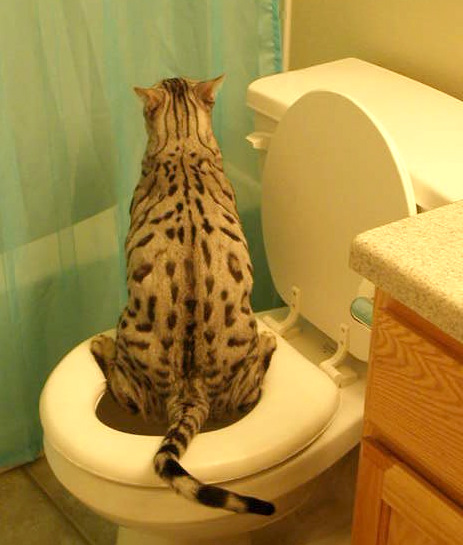Our Dangers of Flushing Animal Waste Down the Toilet
Our Dangers of Flushing Animal Waste Down the Toilet
Blog Article
They are making a few good annotation about Why you should never flush dog poop down the toilet as a whole in this content directly below.

When it involves getting rid of waste, particularly animal waste, many individuals commonly consider the practical choice of flushing it down the toilet. However, this apparently very easy option can have severe consequences for the setting and public health. In this write-up, we'll explore why flushing pet waste down the toilet is a negative idea and supply alternate techniques for correct disposal.
Intro
Appropriate garbage disposal is vital for preserving environmental sustainability and public health. While it might seem harmless to flush animal waste down the bathroom, it can bring about various issues, both for the environment and human well-being.
Risks of flushing pet waste
Environmental impact
Flushing animal waste presents damaging germs and pathogens right into waterways, which can negatively impact marine communities. These microorganisms can contaminate water resources and harm marine life, interfering with fragile ecosystems.
Public health concerns
Pet waste consists of harmful microorganisms such as E. coli and Salmonella, which can present severe health and wellness threats to humans. Flushing pet waste down the commode can contaminate water materials, leading to the spread of diseases and infections.
Alternatives to flushing
Instead of purging animal waste down the toilet, there are numerous alternative disposal approaches that are much more environmentally friendly and sanitary.
Composting
Composting pet waste is an environmentally friendly way to take care of it. By composting, raw material is broken down into nutrient-rich dirt, which can be utilized to fertilize gardens and plants.
Land fill disposal
Throwing away animal waste in a garbage dump is an additional choice. While not as eco-friendly as composting, it is a more secure option to flushing, as it prevents the contamination of water sources.
Animal garbage disposal systems
There are specific pet garbage disposal systems readily available that securely and hygienically deal with animal waste. These systems often make use of enzymes to break down waste and remove smells.
Steps to proper pet garbage disposal
To make sure correct disposal of animal waste, follow these steps:
Scooping and nabbing waste
Regularly scoop and bag pet waste utilizing biodegradable bags. This prevents waste from infecting the atmosphere.
Using marked waste bins
Dispose of bagged pet waste in designated waste bins, such as garden compost bins or land fill containers. Avoid flushing it down the commode in any way prices.
Cleaning up litter boxes and pet dog locations frequently
Routinely clean can and animal areas to prevent the buildup of waste and germs. Use pet-safe cleansing items to keep hygiene.
Benefits of proper disposal methods
Taking on appropriate disposal methods for animal waste offers a number of benefits:
Decreased environmental pollution
Correct disposal techniques lower the threat of environmental pollution, safeguarding rivers and communities from contamination
Lessened danger of water contamination.
By staying clear of flushing pet waste down the commode, the risk of water contamination is considerably lowered, guarding public health.
Improved cleanliness and hygiene
Proper disposal techniques promote better hygiene and health, developing a more secure atmosphere for both people and animals.
Conclusion
In conclusion, purging pet waste down the bathroom is hazardous to the environment and public health. By taking on alternate disposal techniques and following correct waste administration practices, we can reduce the negative influence of animal waste and add to a cleaner, healthier earth.
What To Do With Dog Poo – The Do's And Don'ts Of Disposing Of Faeces
Dog poo bins
Some councils provide dedicated dog waste bins in popular dog-walking areas that can take dog poo that has been bagged but you can legally dispose of dog waste in any public litter bin, as long as it is securely bagged. This also applies to your wheelie bin at home.
Do not flush
Water companies do not recommend flushing dog faeces down the toilet because certain parasites can survive the water processing treatment and are potentially harmful to humans. You should also never consider flushing dog poo that has been bagged down the toilet as the bags will not break down and instead create severe blockages in the sewage system.
In the woods
The Forestry Commission promotes a ‘stick and flick’ method for dealing with waste in the woods. This means finding a stick and using it to flick any poo from off the path so that it is out of the way of other walkers. You could also bury it as long as it is not in an area where there might be livestock.
Livestock
Parasites found in dog poo can be transmitted to livestock if they inadvertently eat infected faeces that has been left on grazing land. This could result in the death of sheep or abortion in cattle so you should always make sure you pick up your dog’s waste in fields where livestock could be present.

I'm very drawn to and I really hope you enjoyed reading our blog post. Make sure you set aside a second to share this post if you appreciated it. I praise you for your time. Return soon.
Call Report this page